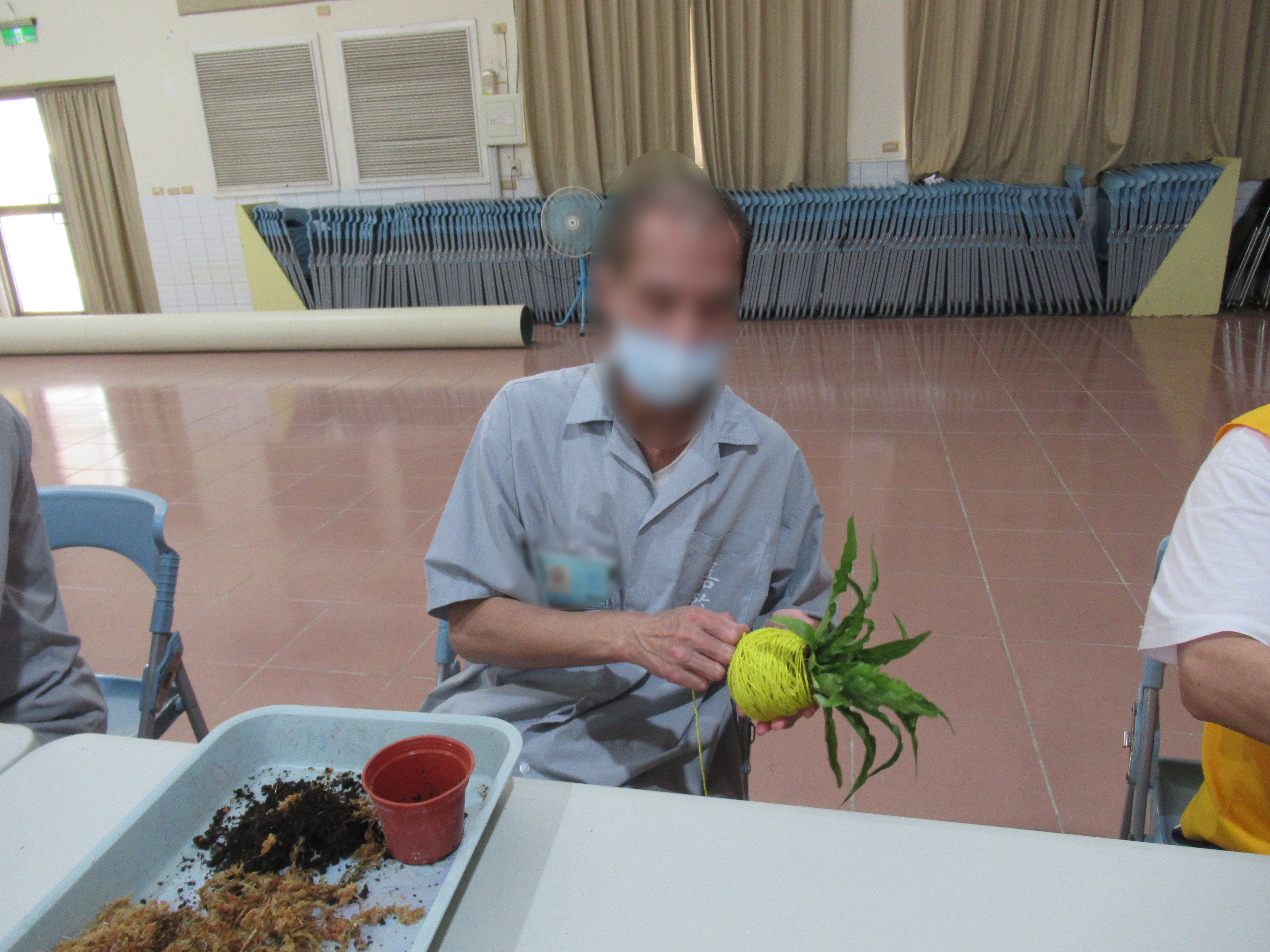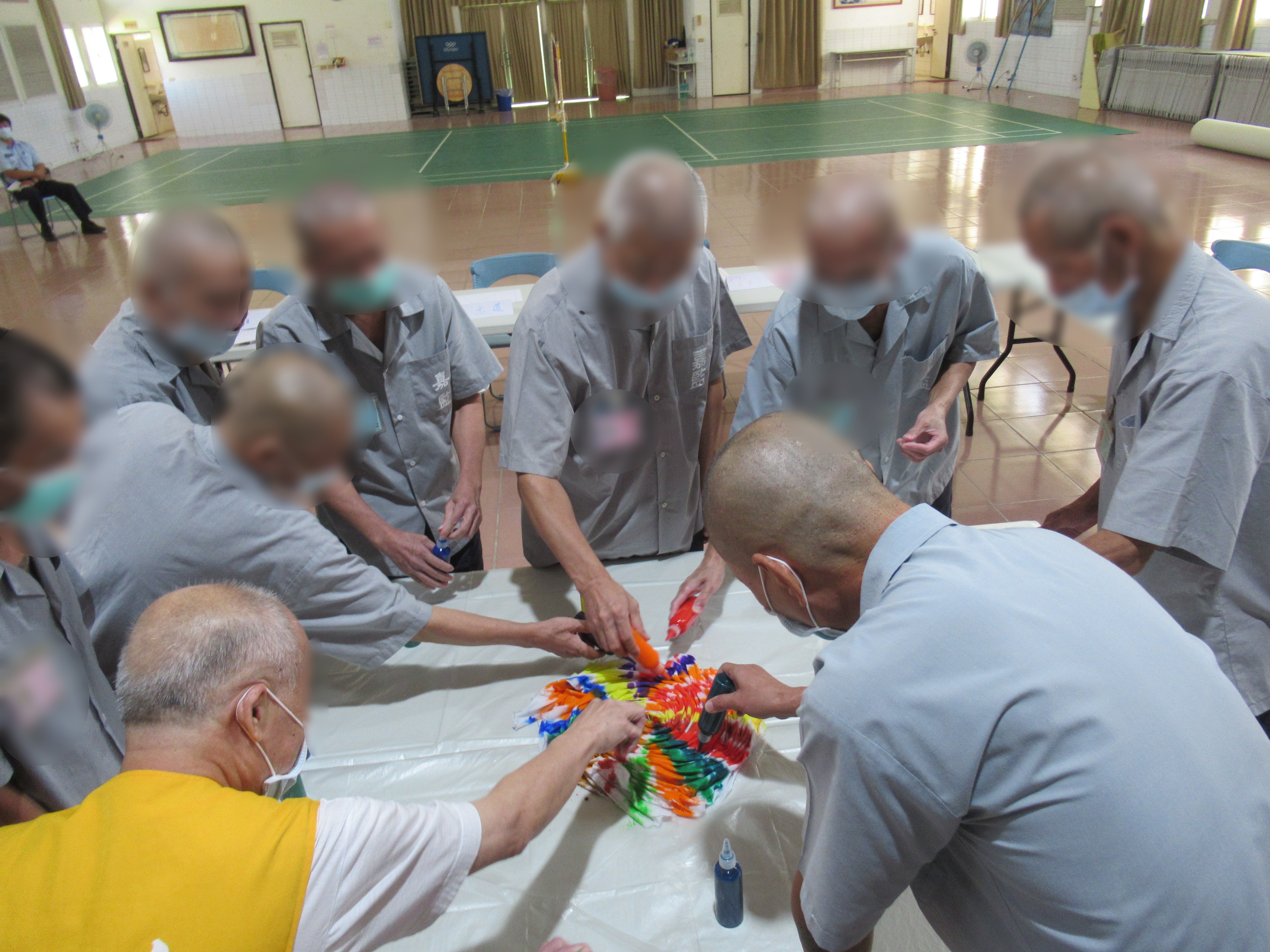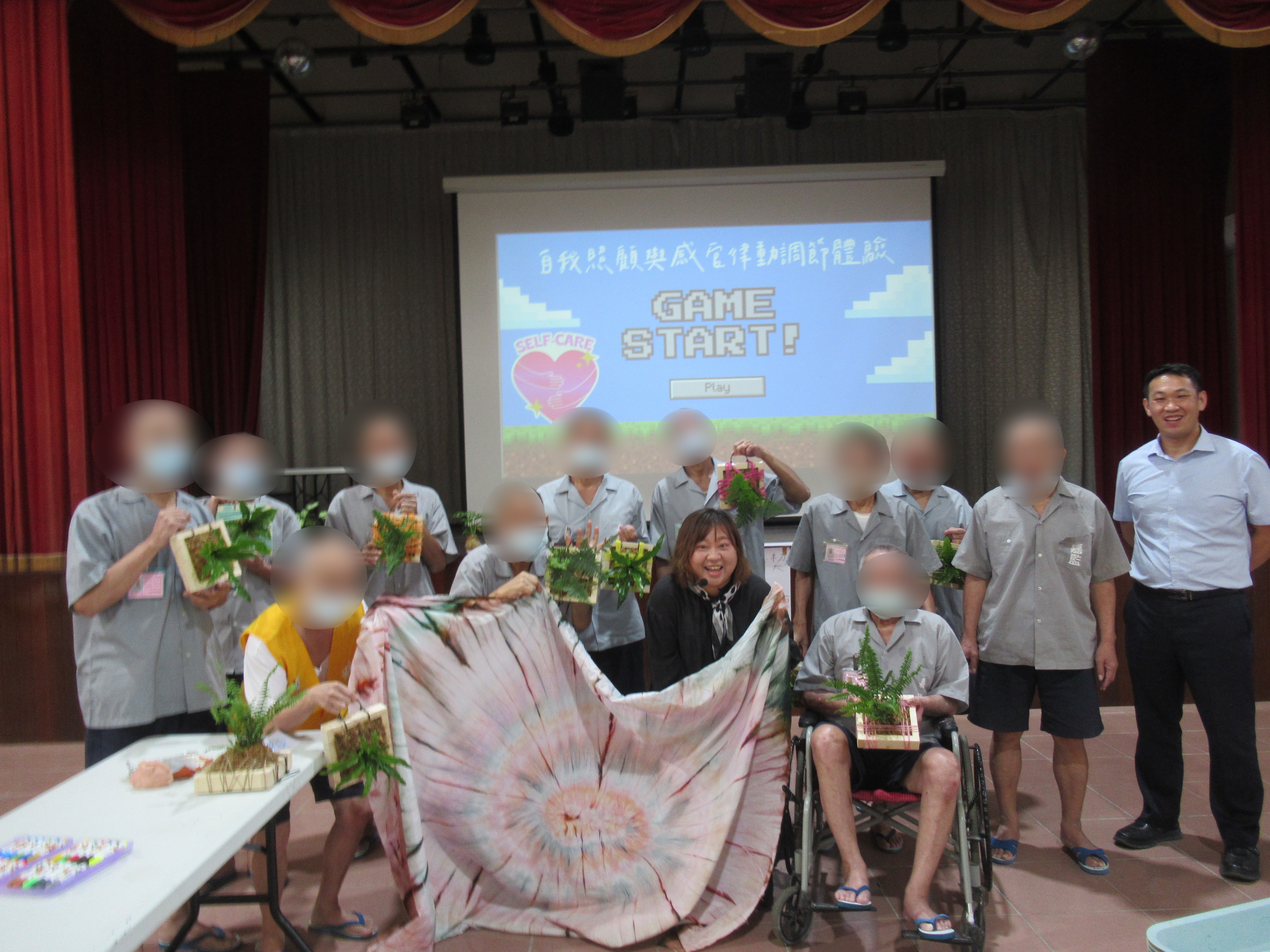Gardeners of the Soul: Rediscovering the Resilience of Life Amidst Greenery and Colors
- Publication Date :
- Last updated:2025-09-12
- View count:68
To enhance the psychological well-being of elderly inmates, Chiayi Prison, Agency of Corrections, Ministry of Justice, has launched a special initiative combining horticultural therapy with trauma-informed care. Beginning on July 25, the prison has organized a four-session program titled “Horticultural and Art Therapy Workshops—A Healing Time for Adults.” The program targets elderly inmates currently facing major illnesses such as cancer, dementia, or stroke. It is led by Counseling Psychologist Ms. Cheng Hsiang-Jou from “This Association Counseling Center,” who has extensive experience in horticultural and art-based psychological interventions. Through the use of paints and plants, she guides elderly inmates in heightening sensory awareness, understanding the fundamentals of trauma, and improving emotional regulation and stability.
As participants’ physical functions decline with age and illness, they often experience loneliness, depression, numbness, and emptiness, which weakens their psychological resilience in coping with life’s challenges—pushing them beyond their “window of tolerance.” The window of tolerance refers to the range within which individuals can effectively self-regulate under stress. Past traumas, current living conditions, and interpersonal difficulties often constrict this window, making inmates more vulnerable to “falling outside the window,” leading to trauma responses such as fight, flight, or freeze. Through horticultural therapy, participants reconnect with life, engage multiple senses, practice muscle relaxation, and learn mental health knowledge that strengthens self-awareness and motivation for self-care.
In the workshops, Ms. Cheng first introduces the concept of trauma-informed care, then guides inmates in creating personalized moss balls and mounted plants. Colored threads representing different emotions are used, encouraging participants to reflect on and process their inner feelings. In addition, inmates collaborate to produce a rainbow-dyed cloth symbolizing the collective atmosphere, thereby fostering a sense of belonging. One inmate, paralyzed on the right side due to stroke, joyfully remarked: “I never thought I could manage to wrap the plants myself.” Meanwhile, the psychologist observed that when the inmates saw their group’s dyed cloth, they were deeply captivated, expressing admiration: “It’s really beautiful—our work turned out quite well!”
Post-workshop surveys revealed that 80% of participants strongly agreed they had experienced emotional stability, and nearly 90% felt they had acquired basic self-regulation strategies. Pre- and post-program assessments further indicated that some participants reported significantly increased confidence and a stronger sense of security.
With Taiwan’s population continuing to age, the number of elderly inmates is steadily rising. Chiayi Prison will actively expand such elderly-focused intervention programs to address psychological health challenges, gradually rebuild inmates’ resilience, strengthen self-care capacity, and foster long-term mental well-being.







